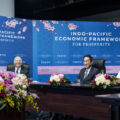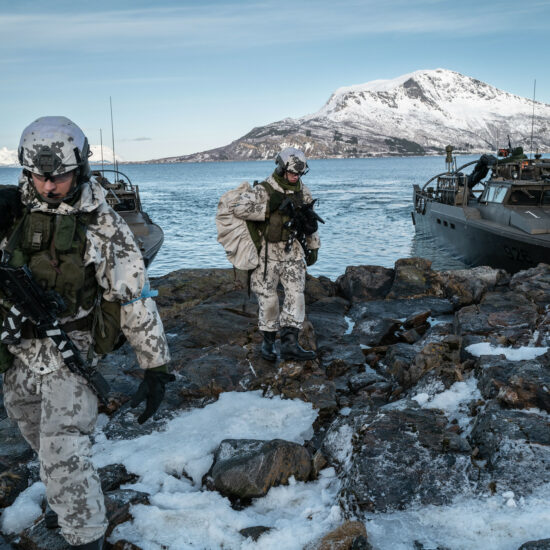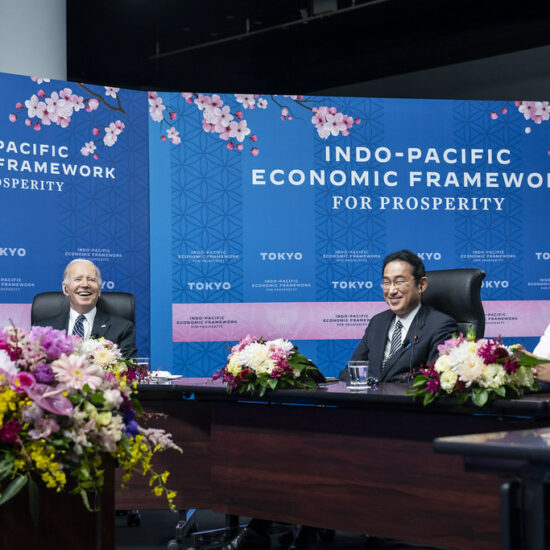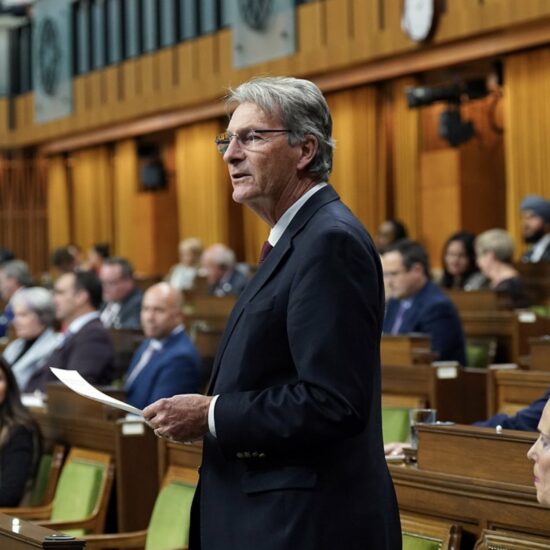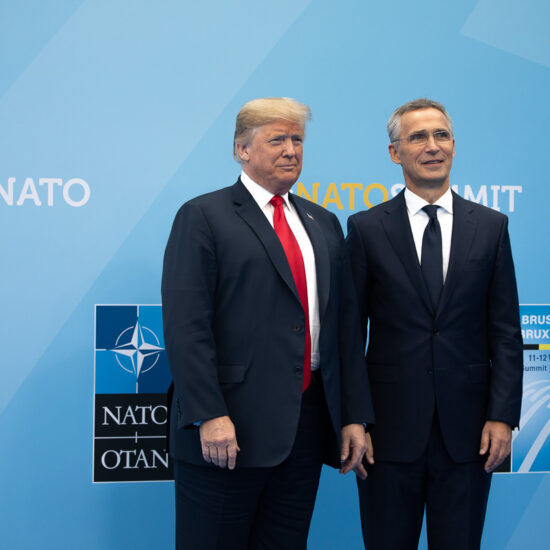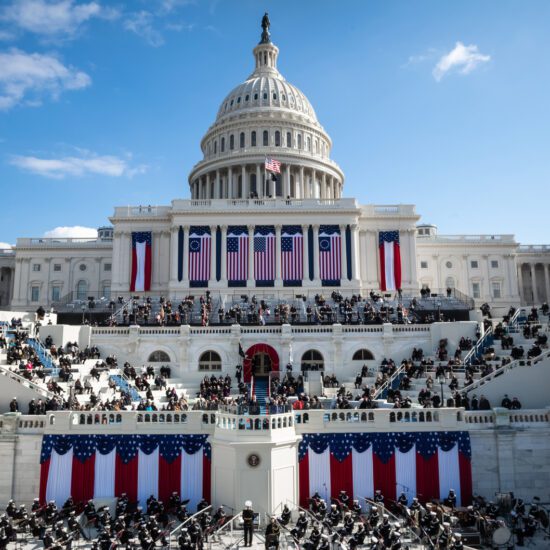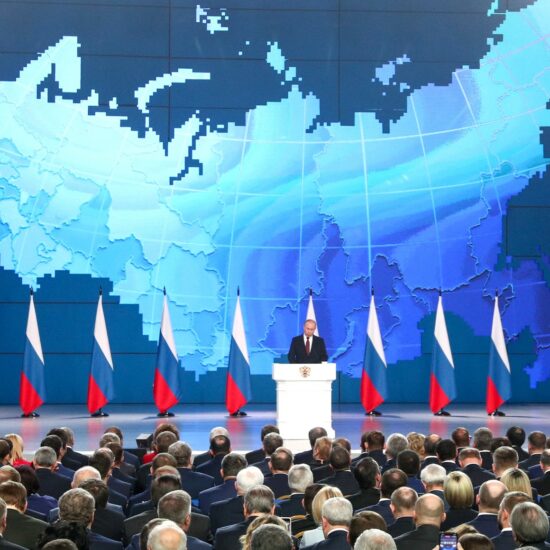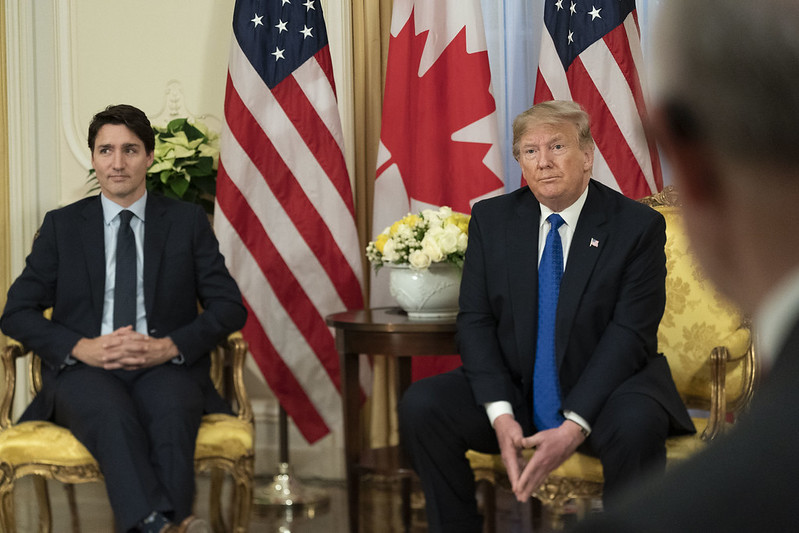
Image Credit: The White House
The outcome of the US presidential election in November will ultimately determine the future of bilateral relations with the United States. Canada faces two prospects: the re-election of President Donald Trump or former Vice-President Joe Biden winning the general election.
With less than 30 days left until the US presidential election, our southern neighbour is already engulfed in multiple crises: wildfires across its West Coast, violent racial protests in multiple major cities, and the deadly spread of the coronavirus. Until now, Canada has exercised prudence and caution. The federal government closed Canada’s shared borders with the US to prevent a resurgence of the virus within the provinces and territories, attempted to address racial inequality at home to prevent a spill-over of Black Lives Matter protests in Canadian cities, and extended a helping hand to Californians battling deadly wildfires. Meanwhile, the Trudeau government continues to confront an increasingly hostile American administration—one that undercut Canada’s medical supply chains and threatened tariffs on Canadian aluminum exports in the midst of an economic downturn. Although Canada has overcome these hurdles with relative success, the outcome of the US presidential election in November will ultimately determine the future of bilateral relations with the United States. Canada faces two prospects: the re-election of President Donald Trump or former Vice-President Joe Biden winning the general election. This article will explore the implications of both scenarios on the future of Canadian foreign policy.
Canada and a Second-term Trump
Since assuming office, the Trump administration has withdrawn and renegotiated several multilateral agreements that include Canada as a signatory member. From abandoning the Comprehensive and Progressive Agreement for Trans-Pacific Partnership (CPTPP), to forcing a renegotiation of the North American Free Trade Agreement (NAFTA), Donald Trump’s ‘America First’ policy has sincerely undermined Canadian economic interests. The former prevented Canada from increasing exports to the Asia Pacific region, and the latter impaired Canada’s sovereign right to trade with China. Additionally, the renegotiation of NAFTA, which produced the United States-Mexico-Canada Agreement (USMCA), included the lifting of import restrictions on American dairy, among other concessions.
On climate change, the Trump administration’s lack of interest in tackling this crisis has hindered Canada’s ability to protect its own population from life-threatening effects. The recurring wildfires in California—made far deadlier by rising temperatures, according to FEMA experts—produced extreme pollution in Canada’s western province of British Columbia. Throughout the 2020 wildfires, Vancouver’s weather was ranked as among the worst in the world, second only to Portland. In parallel, the Trump administration’s neglect of the climate crisis also triggers volatility for many businesses, including those in the auto industry that depend on cross-border trade. Trump’s war with California over fuel efficiency standards threatens more than 525,000 Canadian workers in the auto industry.
In other policy arenas, the US’ unpredictable and dangerous foreign policy adventurism threatened Canadian lives abroad. Trump’s hawkish approach towards Beijing necessitated the notorious Canadian arrest warrant for Huawei CFO Meng Wanzhou, which, in turn, ultimately prompted the arrest of Canadians Michael Kovrig and Michael Spavor in China. The US has yet to convince Beijing to release the two detained Canadians. In Western Asia, the assassination of Iranian General Qasem Soleimani produced dangerously heightened tensions in the region, resulting in the calamitous downing of Flight 752 that killed 176 passengers, including 55 Canadians. As Prime Minister Trudeau argued, “If there was no escalation recently in the region, those Canadians would be right now home with their families.” The confrontation also put the safety of Canadian troops at risk and forced the relocation of CAF troops from Iraq to Kuwait to prevent Canada from being dragged into a potential US-Iran conflict. Concerning the global fight against the COVID-19 pandemic, the United States withdrew from the World Health Organization (WHO), where Canada is a contributing member-state, and also impeded Canada’s efforts to import N95 face masks. Moreover, the United States’ disastrously mishandled pandemic response has resulted in a devastating loss of human life and plunged the US economy into a recession, which has reproduced negative effects in the Canadian economy.
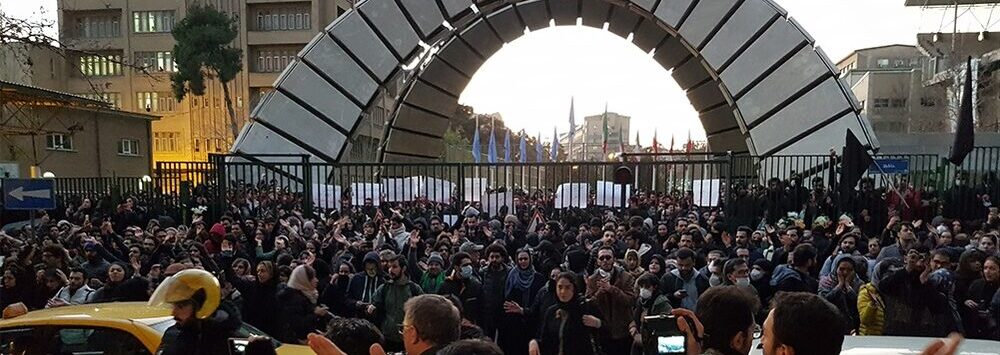
Protests against downed Ukraine International Airlines Flight 752 in front of Amir Kabir University. Image Credit: MojNews
A second Trump term would mean a continuation of this turbulent relationship. Last month, Canada won a trade dispute with the US on lumber before the World Trade Organization. Washington has responded by appealing the case, a decision that concerns Ottawa. This latest dispute reflects the ongoing strained trade relations under the Trump administration. In addition to lumber, the two countries are engaged in a long-standing dispute over aluminum. Until now, the United States has refrained from slapping tariffs on Canadian aluminum, following the federal government’s credible threat to impose tariffs on American imports. And on US trade with the Asia Pacific, the recent trade deal with China has been a major source of concern for Canada, given that China’s commitment to purchase large amounts of American agricultural products and other imported goods will be painful for Canadian exporters.
Moreover, a prolonged weak response to the COVID-19 pandemic from Washington will continue to negatively impact the US economy. The US President and First Lady have both contracted the virus, further impeding effective leadership in managing this crisis. This is bad news for Canada, a country highly reliant on trade with its southern neighbour. On vaccines, for example, the US has already indicated that it will not join the COVAX project, a global procurement initiative aimed at ensuring equitable, fair, and timely access to vaccines for lower-income countries. Canada, on the other hand, has pledged to $440 million to the initiative. Managing the distribution of vaccines will be critical to Canadian health security, as containing the virus abroad will allow Canada to control its spread within its own borders.
Canada and a Biden Presidency
To assess the future of US-Canada relations under a Biden presidency, we must first consider historical precedence: exploring President Obama’s relationship with Canada, when Joe Biden served as his Vice President. Under the Obama administration, one major dispute was the construction of the Keystone XL pipeline. The abandonment of Keystone dealt a heavy blow to bilateral relations. The pipeline was critical to Canada’s energy policy, which to this day requires increased export capacity to be financially viable. Regardless, Canada and the US cooperated on border security improvements, mutually beneficial infrastructure projects, and law enforcement activities, without hindering tourism and trade. The Obama administration also worked with Canada and other allies to craft the CPTPP, which, as previously mentioned, would’ve expanded Canada’s export market in the Asia Pacific.
Moving forward, in comparison to strained relations under President Trump, Canada stands to benefit from a Biden presidency. First, Biden’s domestic policies will improve Canada’s economy. If elected, Biden has promised to raise corporate tax rates. This policy will increase Canada’s competitive corporate tax advantage: large US corporations would pay a higher marginal effective tax rate (METR) of 25.4%, compared to Canada’s corporate METR of 15.5%. Although, one must keep in mind that a substantial increase in American corporate taxation might hurt Canada’s exports to the US in return. Second, a Biden administration will rejoin the Paris Climate Change Accord, which will provide ample opportunities for the two countries to cooperate on a range of issues, such as renewable energy, to fight the threat of climate change. Third, reduced global tensions will keep Canadians safe abroad. For example, a less hostile relationship between China and the United States might lead the US to abandon the indictment of Huawei CFO Meng Wanzhou, which would likely help free the ‘Two Micheals’ from China. Fourth, similar attitudes on trade between the Trudeau government and the Biden administration can help diminish trade tensions. A multilateral free-trade agreement, designed similarly to the CPTPP, might help Ottawa and Washington gain more influence in the Asian market.
However, regardless of who assumes the presidency in November, US public opinion must also be taken into consideration. Public opinion plays a major role in influencing policy-making in Washington, and a Democratic White House in 2021 will not resolve all US-Canada disputes. In 2017, following the election of Donald Trump, 46% of Americans believed that NAFTA was bad for the United States. Major US presidential candidates in 2016, including Donald Trump, Bernie Sanders, and Hillary Clinton, either denounced NAFTA or backed negotiating its terms. Meanwhile, recent inquiries suggest increased support for free-trade—in 2019, numerous polls indicated that nearly two-thirds of Americans welcome free-trade with foreign nations. With respect to US trade with Canada and Mexico, a 2020 Gallup poll shows that 8/10 Americans believe that the USMCA will be advantageous for the United States. While the majority of Americans’ support for foreign trade is a positive development for Canada, a more in-depth assessment of these polls warrant attention. In that same Gallup poll, more Democrats, compared to Republicans, expressed concern about free-trade with Canada and Mexico: 20% of Democrats believed that the USMCA would be disadvantageous for the US, whereas only 6% of Republicans held the same view.
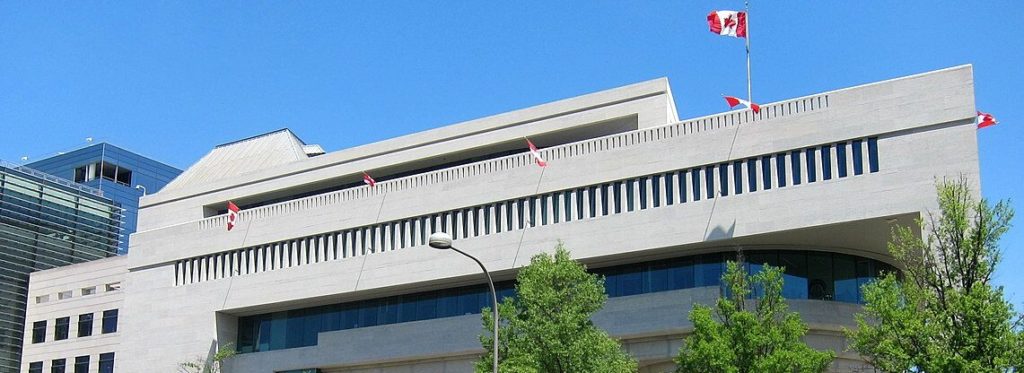
Embassy of Canada in Washington, D.C. Image Credit: AgnosticPreachersKid
In other words, protectionist sentiments are not exclusive to Donald Trump’s electoral base. Even if Biden wins the presidency, trade tensions will more or less continue between the two countries. In a recent article for the Globe and Mail, former Canadian diplomat Lawrence Herman accurately assessed that there is a strong anti-free-trade sentiment within the Democratic party due to the major influence of organized labour groups, namely the United Auto Workers. Such sentiments, coupled with the influence of trade-skeptic Democratic politicians in US-Canada border states, will contribute to continued economic tensions under a Democratic presidency. Against the backdrop of Canada’s decades-long trade disputes with consecutive Democratic and Republican administrations over soft-wood lumber, Herman argues that there is the possibility of a future Democratic administration utilizing the bipartisan-backed trade remedy system against Canadian interests.
Nevertheless, trade tensions and other areas of dispute can be more prudently managed under a Biden presidency. Canada and the United States will have the opportunity to capitalize on mutual strategic interests, such as fighting the myriad threats of climate change. However, with the re-election of Donald Trump, tensions could rapidly escalate out of control. In fact, after a second potential election victory, President Trump could become even more unhinged in his approach towards Canada. Trade disputes could continue to intensify without cooperation on shared interests such as climate mitigation and curbing the spread of COVID-19. Uncertain days are ahead, and Canada needs to be extra vigilant, prepared for either scenario.

